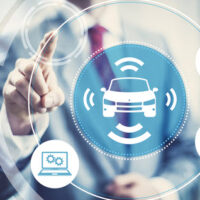Liability for Crashes Involving Self-Driving Vehicles

Over the last few years, the number of self-driving vehicles on the road has increased at a steady rate. While manufacturers initially boasted that these types of vehicles were safer than their manually driven counterparts, as they were less prone to error, it soon became clear that even self-driving vehicles could and were involved in a significant number of car accidents. Although it can be difficult to hold manufacturers accountable for accidents involving self-driving vehicles, it is possible, so if you were injured in an accident with this type of vehicle, it is critical to speak with an experienced car accident attorney who can assist you with your claim.
Autopilot Feature Malfunctions
Although self-driving vehicles were initially touted as being much safer than manually operated vehicles, the number of accidents involving these types of cars has been on the rise. One California family, for instance, recently filed a wrongful death claim on behalf of a relative who lost his life after his self-driving Tesla vehicle crashed into a concrete barrier. In their complaint, the plaintiffs pointed to evidence that at the time of the accident, the driver was using the car’s autopilot function. Although this function requires drivers to keep their hands on the wheel, it does automatically regulate a number of different driving functions without their input, including cruise control adjustment, navigating lanes, and making turns. When drivers remove their hands from the wheel, the autopilot systems are supposed to engage various sound and visual alarms to alert the driver. According to the car’s manufacturer these alerts sounded and flashed several times prior to the collision, so the driver knew that the function wasn’t reliable when the crash took place.
Manufacturer Liability
In the California case, the decedent’s family continues to claim that the car’s manufacturer should be held liable for the accident, arguing that the autopilot feature was defective. Since these allegations were raised, Tesla has refused to respond to questions about how many times the alarm actually went off prior to the collision, although it did acknowledge that the system was designed to disengage after a specific number of alerts have sounded. In the event that a court finds that Tesla’s self-driving vehicle was defective, the decedent’s family members could recover damages for medical bills, pain and suffering, and loss of future income. However, this would require evidence proving that:
- The part’s design was defective;
- The part was damaged during manufacturing; or
- The manufacturer knew of the risks, but still failed to warn consumers.
This is not the only recent example of this type of accident. In fact, the National Transportation and Safety Board (NTSB) is currently investigating two other accidents involving the same manufacturer, one of which concerned a Florida man who passed away in an accident while his autopilot system was engaged.
Call a Florida Car Accident Lawyer
If you were injured in an accident with a self-driving vehicle, you need the help of an experienced Florida car accident attorney. Call Boone & Davis at 954-566-9919 today for a free review of your case.
Resource:
wsj.com/articles/tesla-blames-driver-in-fatal-car-crash-1523487100
